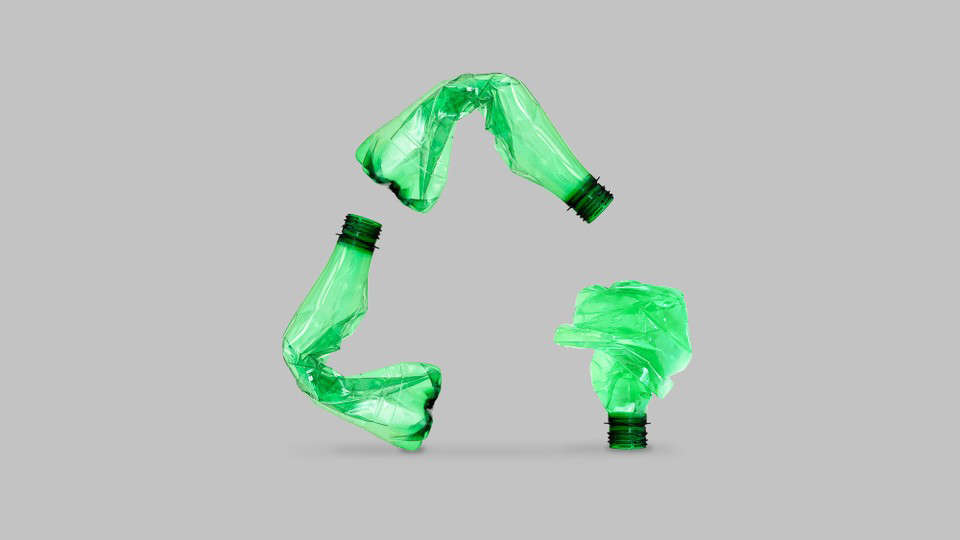11 Dec 2024

Tired Earth
By The Editorial Board

Plastic recycling does not work and will never work. The United States in 2021 had a dismal recycling rate of about 5 percent for post-consumer plastic waste, down from a high of 9.5 percent in 2014, when the U.S. exported millions of tons of plastic waste to China and counted it as recycled—even though much of it wasn’t.
Recycling in general can be an effective way to reclaim natural material resources. The U.S.’s high recycling rate of paper, 68 percent, proves this point. The problem with recycling plastic lies not with the concept or process but with the material itself.
The first problem is that there are thousands of different plastics, each with its own composition and characteristics. They all include different chemical additives and colorants that cannot be recycled together, making it impossible to sort the trillions of pieces of plastics into separate types for processing. For example, polyethylene terephthalate (PET#1) bottles cannot be recycled with PET#1 clamshells, which are a different PET#1 material, and green PET#1 bottles cannot be recycled with clear PET#1 bottles (which is why South Korea has outlawed colored PET#1 bottles.) High-density polyethylene (HDPE#2), polyvinyl chloride (PVC#3), low-density polyethylene (LDPE#4), polypropylene (PP#5), and polystyrene (PS#6) all must be separated for recycling.
Just one fast-food meal can involve many different types of single-use plastic, including PET#1, HDPE#2, LDPE#4, PP#5, and PS#6 cups, lids, clamshells, trays, bags, and cutlery, which cannot be recycled together. This is one of several reasons why plastic fast-food service items cannot be legitimately claimed as recyclable in the U.S.
Another problem is that the reprocessing of plastic waste—when possible at all—is wasteful. Plastic is flammable, and the risk of fires at plastic-recycling facilities affects neighboring communities—many of which are located in low-income communities or communities of color.
Unlike metal and glass, plastics are not inert. Plastic products can include toxic additives and absorb chemicals, and are generally collected in curbside bins filled with possibly dangerous materials such as plastic pesticide containers. According to a report published by the Canadian government, toxicity risks in recycled plastic prohibit “the vast majority of plastic products and packaging produced” from being recycled into food-grade packaging.
Yet another problem is that plastic recycling is simply not economical. Recycled plastic costs more than new plastic because collecting, sorting, transporting, and reprocessing plastic waste is exorbitantly expensive. The petrochemical industry is rapidly expanding, which will further lower the cost of new plastic.
Despite this stark failure, the plastics industry has waged a decades-long campaign to perpetuate the myth that the material is recyclable. This campaign is reminiscent of the tobacco industry’s efforts to convince smokers that filtered cigarettes are healthier than unfiltered cigarettes.
Conventional mechanical recycling, in which plastic waste is ground up and melted, has been around for many decades. Now the plastics industry is touting the benefits of so-called chemical recycling— in which plastic waste is broken down using high heat or more chemicals and turned into a low-quality fossil fuel.
In 2018, Dow Chemical claimed that the Renewlogy chemical-recycling plant in Salt Lake City was able to reprocess mixed plastic waste from Boise, Idaho, households through the “Hefty EnergyBag” program and turn it into diesel fuel. As Reuters exposed in a 2021 investigation, however, all the different types of plastic waste contaminated the pyrolysis process. Today, Boise burns its mixed plastic waste in cement kilns, resulting in climate-warming carbon emissions. This well-documented Renewlogy failure has not stopped the plastics industry from continuing to claim that chemical recycling works for “mixed plastics.”
Chemical recycling is not viable. It has failed and will continue to fail for the same down-to-earth, real-world reasons that the conventional mechanical recycling of plastics has consistently failed. Worse yet, its toxic emissions could cause new harm to our environment, climate, and health.
We’re not making a case for despair. Just the opposite. We need the facts so that individuals and policy makers can take concrete action. Proven solutions to the U.S.’s plastic-waste and pollution problems exist and can be quickly replicated across the country. These solutions include enacting bans on single-use plastic bags and unrecyclable single-use plastic food-service products, ensuring widespread access to water-refilling stations, installing dishwashing equipment in schools to allow students to eat food on real dishes rather than single-use plastics, and switching Meals on Wheels and other meal-delivery programs from disposables to reusable dishware.
If the plastics industry is following the tobacco industry’s playbook, it may never admit to the failure of plastics recycling. Although we may not be able to stop them from trying to fool us, we can pass effective laws to make real progress. Single-use-plastic bans reduce waste, save taxpayer money spent on disposal and cleanup, and reduce plastic pollution in the environment.
Consumers can put pressure on companies to stop filling store shelves with single-use plastics by not buying them and instead choosing reusables and products in better packaging. And we should all keep recycling our paper, boxes, cans, and glass, because that actually works.
Source : msn.com
Comment